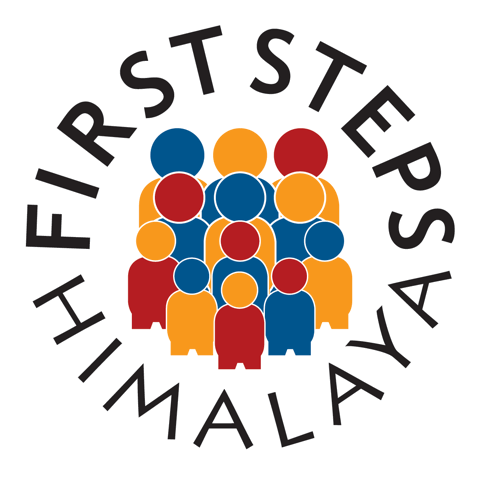Volunteering in rural Nepal is an incredibly rewarding experience - some might even say it is life changing! Nevertheless, life in a traditional Nepali village has its challenges for foreign volunteers. Without the simple comforts we are used to at home, the rough roads and the culture shock, volunteers can often feel as though they have been thrown in the deep end. However, learning to understand and embrace these challenges as part of a very different way of life will give you a deeper appreciation for Nepali culture.
Rhona being welcomed to Shree Golma Devi School, Jitpur
Rhona grateful for a bed for the night whilst out in remote parts of Sindhupalchok, warmly welcomed by a local teacher and her family.
A key rule of life in Nepal is to always expect the unexpected - almost nothing will go to plan! From power cuts, road closures, unexpected public holidays and much, much more, it can be very difficult to have a day-to-day itinerary and stick to it!
Stephanie from Germany taking part in the Tihar festival in Jitpur
Volunteer Bernie embracing culture at the annual Holi festival
The ability to adapt to change is key, as is understanding that such interruptions and delays are well beyond the control of you or your organising team. Something that is important to remember is the cultural differences between many foreign, especially Western, nations and Nepal is that whilst foreigners like to plan ahead and have fixed itineraries, Nepalis can seem much more relaxed about this and appear to just go with the flow. Therefore, whilst it can be frustrating when deadlines are not met or plans change, it is important to keep these different cultural perspectives in mind.
Cameron finds a young assistant at an earthbag building site in Dyali.
In the typical Nepali villages where volunteers stay, it is very difficult to find many of the home comforts that we often take for granted. Showers are normally bucket showers and hot water is scarce. Whilst we may be used to having daily hot showers, never expect this in Nepal! Most toilets are also squat toilets which can take a bit of practice to get used to. Even if you get a western toilet, you might find that shower water pours directly onto the toilet seat.
Soft pillows and mattresses are unfortunately another luxury in Nepal, so prepare to sleep on a much harder surface than you are used to. Unfamiliar smells, noises and levels of cleanliness are all other culture shocks that volunteers have to grapple with in rural Nepal.
Typical homestay bedroom
A clean squat toilet
Food in rural Nepal largely consists of one staple meal: Dal Bhat. A typical Dal Bhat consists of rice, dal (lentil curry) and tarkari (vegetable curry, usually cauliflower) and saag (mustard spinach). Dal Bhat is a staple meal in Nepali villages, normally eaten for every meal without much variation. In fact, many Nepalis use the word “food” or “to eat” instead of naming Dal Bhat specifically. Something to keep in mind is that Nepalis eat a lot of rice with their Dal Bhat, and it can be daunting to be handed a plate with a mountain of rice. Therefore, let your host know you will only eat a small amount of rice. Furthermore, Dal Bhat will often be served with a variety of pickles and fermented vegetables. Try them if you would like, but be aware that many pickles can taste extremely bitter to those unaccustomed to the taste. Whilst most foreigners enjoy Dal Bhat, eating it for every meal can get tiring!
Ultimately, however, these are the realities of rural life in Nepal and pushing yourself outside of your comfort zone can be a very rewarding experience. What’s more, getting back to Kathmandu, having a hot shower and a pizza will feel heavenly!
Local children intrigued by Bernie
Volunteer Jennie bids fond farewells at the Tamang family home, Mulkharka
For more information about volunteering contact admin@firststepshimalaya.org











